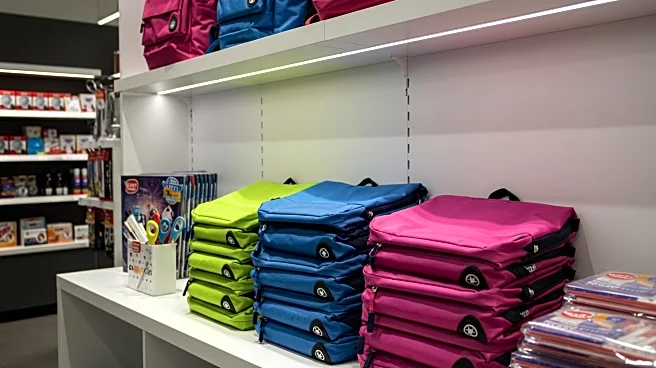What's Happening?
The back-to-school shopping season is facing challenges due to tariffs and budget-conscious consumers. According to a UBS survey, elevated import duties are a significant concern, second only to inflation. This has led to a forecasted decline in spending on clothing, shoes, and accessories by 2.3% year over year. The National Retail Federation predicts families will spend less on school-related items compared to last year. Despite these challenges, some retailers like TJX Companies, Costco, and Amazon are expected to benefit from consumers seeking value and affordability. These companies are employing strategies such as stockpiling inventory, diversifying supply chains, and leveraging private labels to mitigate tariff impacts.
Why It's Important?
The impact of tariffs on consumer prices is significant, affecting both retailers and consumers. Retailers are pressured to maintain profitability without passing costs onto consumers, who are already facing inflationary pressures. Companies like TJX, Costco, and Amazon are positioned to capture more market share by offering value-oriented products. This situation highlights the importance of strategic planning and adaptability in the retail sector, as businesses navigate economic challenges. The broader implications include potential shifts in consumer behavior towards more cost-effective shopping options, influencing retail strategies and market dynamics.
What's Next?
Retailers are expected to continue employing strategies to mitigate tariff impacts, such as negotiating with suppliers and diversifying supply chains. Upcoming earnings reports from major retailers like TJX, Target, and Walmart will provide further insights into how these companies are managing the current economic environment. The Federal Reserve's potential rate cut next month may also influence consumer spending and retail strategies. As tariffs continue to affect prices, retailers will need to balance cost management with consumer demand for affordable products.










